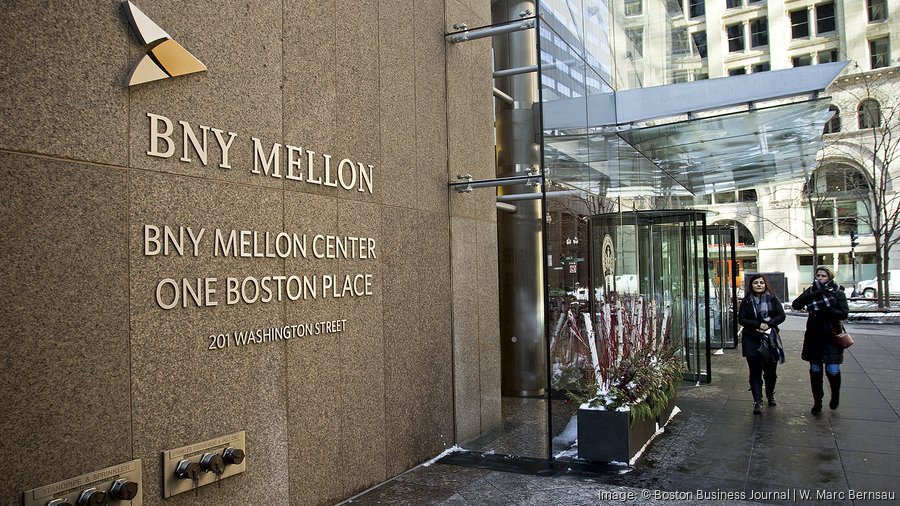Standish Mellon was an American banker, industrialist, and philanthropist. He was the U.S. Secretary of the Treasury from 1921 to 1932, and he played a major role in shaping the economic policies of the United States during the 1920s.
Mellon was a strong advocate of laissez-faire capitalism, and he believed that the government should play a limited role in the economy. He was also a supporter of free trade, and he opposed government intervention in the markets. Mellon's economic policies were controversial at the time, but they are now widely credited with helping to create the economic boom of the 1920s.
In addition to his work as Secretary of the Treasury, Mellon was also a major philanthropist. He donated millions of dollars to educational and cultural institutions, including the National Gallery of Art in Washington, D.C. Mellon's legacy is complex and controversial, but he is widely regarded as one of the most influential figures in American economic history.
Standish Mellon
Andrew Mellon was an influential figure in American history, serving as the United States Secretary of Treasury and engaging in various philanthropic activities. His impact can be summarized through the following key aspects:
- Financier
- Industrialist
- Philanthropist
- Art collector
- Laissez-faire advocate
- Controversial figure
- Economic policy shaper
As a financier, Mellon played a significant role in the development of American industry. His involvement in banking and investments contributed to the nation's economic growth. As an industrialist, he was instrumental in the expansion of the aluminum industry, leading to the establishment of the Aluminum Company of America (Alcoa). Mellon's philanthropic endeavors left a lasting legacy, notably through his support for educational and cultural institutions, including the National Gallery of Art in Washington, D.C.
Mellon's passion for art collecting shaped his role as a patron and connoisseur. His extensive collection, now housed in the National Gallery of Art, reflects his discerning taste and appreciation for artistic excellence. Mellon's advocacy for laissez-faire economics, characterized by minimal government intervention, influenced the economic policies of the 1920s. This viewpoint, while controversial at the time, is credited with contributing to the economic prosperity of that era.
- Exploring The Harp Range A Journey Through Sound
- Exploring The Differences Between Freedom Class And Oasis Class Which Cruise Is For You
Throughout his career, Mellon remained a polarizing figure. His wealth and conservative political stance drew both admiration and criticism. Nonetheless, his contributions to American finance, industry, philanthropy, and art continue to shape his legacy as a prominent figure in U.S. history.
1. Financier
Andrew Mellon's role as a financier was integral to his overall impact on American society and the economy. As a prominent figure in the world of finance, Mellon played a key role in shaping the financial landscape of the United States during the early 20th century.
Mellon's financial acumen was evident from a young age, as he demonstrated a keen understanding of banking and investment strategies. He began his career in finance at the family bank, T. Mellon & Sons, where he quickly rose through the ranks and became a partner. Under Mellon's leadership, the bank expanded its operations and became one of the most successful financial institutions in the country.
Beyond his involvement in banking, Mellon was also a major investor in various industries, including aluminum, oil, and railroads. His investments were often strategic and, contributing to the development and growth of these industries. Mellon's financial success allowed him to amass a vast fortune, which he used to support his philanthropic endeavors and art collection.
In summary, Mellon's role as a financier was a defining aspect of his career and legacy. His expertise in banking and investment, combined with his strategic, contributed to his success and enabled him to make significant contributions to American society.
2. Industrialist
Andrew Mellon's role as an industrialist was closely intertwined with his financial endeavors and had a profound impact on American industry, particularly in the aluminum sector.
- Aluminum Industry Pioneer
Mellon played a pivotal role in the development of the aluminum industry in the United States. He recognized the potential of aluminum and invested heavily in the Aluminum Company of America (Alcoa), which he co-founded in 1888. Under Mellon's leadership, Alcoa became a dominant force in the industry, revolutionizing the production and use of aluminum.
- Technological Advancements
Mellon's industrial ventures were characterized by his commitment to innovation and technological advancements. He invested in research and development, leading to significant improvements in aluminum production processes. These advancements not only reduced production costs but also enhanced the quality and versatility of aluminum, making it a viable material for a wide range of applications.
- Economic Growth
Mellon's industrial activities contributed to the overall economic growth of the United States. The expansion of the aluminum industry created new jobs, stimulated related industries, and fostered technological progress. Moreover, Mellon's business acumen and strategic investments generated substantial profits, which he used to support his philanthropic endeavors and art collection.
- Legacy and Impact
Mellon's legacy as an industrialist continues to shape the American economy. Alcoa, the company he co-founded, remains a major player in the aluminum industry worldwide. The technological advancements pioneered by Mellon's ventures laid the foundation for modern aluminum production techniques. Furthermore, his commitment to innovation and economic development serves as an inspiration for aspiring entrepreneurs and business leaders.
In conclusion, Andrew Mellon's role as an industrialist was marked by his vision, innovation, and impact on the development of American industry. His contributions to the aluminum sector, technological advancements, and economic growth left a lasting legacy that continues to shape the industrial landscape of the United States.
3. Philanthropist
Andrew Mellon's role as a philanthropist was a defining aspect of his legacy, reflecting his commitment to supporting education, culture, and the arts in the United States. His philanthropic endeavors were characterized by their scale, vision, and lasting impact:
Educational Institutions
Mellon was a strong advocate for education and recognized the importance of investing in the future generations. He provided substantial financial support to various educational institutions, including universities, colleges, and research centers. Notably, he established the Mellon Institute of Industrial Research at Carnegie Mellon University, which became a renowned hub for scientific and technological advancements.
Cultural Institutions
Mellon's passion for the arts extended beyond his personal collection. He actively supported cultural institutions, recognizing their role in enriching society. His most significant contribution was the establishment of the National Gallery of Art in Washington, D.C., which houses his extensive art collection and has become one of the most visited museums in the world. Additionally, he provided funding for the construction of the National Air and Space Museum.
Legacy and Impact
Mellon's philanthropic legacy continues to shape American society. The educational and cultural institutions he supported have educated generations of students, fostered innovation, and preserved cultural heritage. His vision and generosity have had a profound impact on the intellectual, cultural, and artistic landscape of the United States.
4. Art Collector
Andrew Mellon's role as an art collector was deeply intertwined with his philanthropic endeavors and his passion for preserving cultural heritage. His extensive art collection, now housed in the National Gallery of Art in Washington, D.C., reflects his discerning taste and connoisseurship.
Mellon began collecting art in the early 1900s, focusing on Old Masters, British paintings, and American art. His collection grew rapidly, and he soon became known as one of the most important collectors in the United States. Mellon's collecting practices were characterized by his meticulous research and attention to detail. He consulted with experts, traveled extensively to view works of art, and carefully considered each acquisition.
In 1937, Mellon donated his art collection to the United States government, with the stipulation that it be housed in a national gallery. The National Gallery of Art opened in 1941 and has since become one of the most visited museums in the world. Mellon's collection forms the core of the museum's holdings, and it continues to inspire and educate visitors from around the globe.
Mellon's legacy as an art collector extends beyond his own collection. His vision and generosity have had a profound impact on the American art world. He helped to establish the National Gallery of Art as one of the world's leading museums, and his collection has inspired generations of artists and art lovers.
5. Laissez-faire advocate
Andrew Mellon's strong advocacy for laissez-faire economics, a philosophy that emphasizes minimal government intervention in the economy, was a defining aspect of his economic and political views. His belief in the free market and limited government regulation shaped his policies as Secretary of the Treasury and influenced the economic landscape of the United States during the 1920s.
Mellon argued that government intervention in the economy often leads to unintended consequences and hinders economic growth. He believed that the free market, driven by the forces of supply and demand, is the most efficient mechanism for allocating resources and promoting prosperity. Mellon's laissez-faire approach extended to his views on taxation, trade, and government spending. He advocated for lower taxes, reduced tariffs, and a balanced budget.
Mellon's laissez-faire policies had a significant impact on the American economy. During his tenure as Treasury Secretary, the economy experienced a period of growth and prosperity known as the "Roaring Twenties." However, his policies also contributed to the severity of the Great Depression, which began in 1929. Critics argue that Mellon's adherence to laissez-faire prevented the government from taking necessary steps to regulate the economy and mitigate the impact of the stock market crash.
Despite the controversy surrounding his economic views, Andrew Mellon's advocacy for laissez-faire remains an important aspect of his legacy. His belief in the power of the free market and limited government intervention continues to influence economic debates and policies in the United States and around the world.
6. Controversial figure
Andrew Mellon's legacy as a controversial figure stems from his complex and often contradictory actions and beliefs. His impact on American society and the economy was profound, yet his policies and personal conduct drew both admiration and criticism.
- Economic policies
Mellon's economic policies as Treasury Secretary during the 1920s were highly controversial. His advocacy for laissez-faire economics, deregulation, and tax cuts favored big business and the wealthy, exacerbating income inequality and contributing to the stock market crash of 1929.
- Art collection
Mellon's extensive art collection, now housed in the National Gallery of Art, has been the subject of controversy. Some critics argue that he used his wealth and power to acquire artworks of dubious provenance, including pieces looted during wartime.
- Personal conduct
Mellon's personal conduct also drew criticism. His lavish lifestyle and close ties to industry leaders led to accusations of corruption and cronyism. Additionally, his handling of the Teapot Dome scandal, involving the leasing of government oil reserves, further damaged his reputation.
- Legacy
Despite the controversies surrounding his life and career, Mellon's legacy remains complex and multifaceted. His contributions to American industry, philanthropy, and art cannot be ignored. However, his economic policies and personal conduct continue to be debated and scrutinized.
Overall, Andrew Mellon's controversial nature stems from his influential role in shaping American society and the economy, his complex economic policies, his extensive art collection, and his personal conduct. His legacy continues to be debated and reassessed, ensuring his place as a significant and polarizing figure in American history.
7. Economic policy shaper
Andrew Mellon's role as an economic policy shaper was central to his impact on American society and the economy. As the United States Secretary of the Treasury from 1921 to 1932, Mellon played a pivotal role in shaping the economic policies of the United States during the 1920s, a period known as the "Roaring Twenties."
Mellon's economic policies were largely based on his belief in laissez-faire economics, which advocates for minimal government intervention in the economy. He believed that the free market, driven by the forces of supply and demand, is the most efficient mechanism for allocating resources and promoting prosperity. Mellon's policies included tax cuts, reduced tariffs, and a balanced budget.
Mellon's economic policies had a significant impact on the American economy. During his tenure as Treasury Secretary, the economy experienced a period of growth and prosperity. However, his policies also contributed to the severity of the Great Depression, which began in 1929. Critics argue that Mellon's adherence to laissez-faire prevented the government from taking necessary steps to regulate the economy and mitigate the impact of the stock market crash.
Despite the controversy surrounding his economic policies, Mellon's role as an economic policy shaper remains an important aspect of his legacy. His belief in the power of the free market and limited government intervention continues to influence economic debates and policies in the United States and around the world.
FAQs about Standish Mellon
This section addresses frequently asked questions about Standish Mellon, providing concise and informative answers to common concerns and misconceptions.
Question 1: What was Standish Mellon's primary role in American society?
Answer: Andrew Mellon, often referred to as Standish Mellon, was a prominent figure in American society, serving as the United States Secretary of the Treasury from 1921 to 1932. He played a significant role in shaping the economic policies of the United States during the 1920s and beyond.
Question 2: What were Mellon's key economic beliefs?
Answer: Mellon was a strong advocate of laissez-faire economics, believing in minimal government intervention in the economy. He favored policies that promoted free markets, reduced tariffs, and balanced budgets.
Question 3: How did Mellon's economic policies impact the United States?
Answer: Mellon's policies contributed to the economic prosperity of the 1920s, but they also exacerbated income inequality and contributed to the severity of the Great Depression that began in 1929.
Question 4: What was Mellon's role in the art world?
Answer: Mellon was a passionate art collector and philanthropist. He donated his extensive art collection to the United States government, which formed the core of the National Gallery of Art in Washington, D.C.
Question 5: Why is Mellon considered a controversial figure?
Answer: Mellon's economic policies, personal conduct, and involvement in the Teapot Dome scandal have drawn both admiration and criticism, making him a controversial figure in American history.
Question 6: What is Mellon's legacy?
Answer: Mellon's legacy is complex and multifaceted. He is remembered for his contributions to American industry, philanthropy, and art, as well as his controversial economic policies and personal conduct.
In summary, Standish Mellon was a significant figure in American history, whose impact on the economy, art world, and society continues to be debated and reassessed.
Transition to the next article section:
Tips by Andrew Mellon
Andrew Mellon, a prominent figure in American society and the United States Secretary of the Treasury from 1921 to 1932, offered valuable insights and advice that remain relevant today. Here are a few tips attributed to Mellon:
Tip 1: Embrace Hard Work and Dedication
Mellon believed in the power of hard work and dedication. He emphasized the importance of setting goals, working diligently towards them, and persevering in the face of challenges.
Tip 2: Foster Innovation and Progress
Mellon recognized the significance of innovation and progress. He encouraged individuals and businesses to embrace new ideas, invest in research and development, and continuously strive for improvement.
Tip 3: Exercise Financial Prudence
Mellon emphasized the importance of financial prudence. He advocated for balanced budgets, responsible spending, and wise investment decisions to ensure long-term financial stability.
Tip 4: Support Education and Culture
Mellon believed in the transformative power of education and culture. He supported educational institutions, libraries, and museums, recognizing their role in fostering intellectual growth and societal advancement.
Tip 5: Engage in Responsible Philanthropy
Mellon practiced responsible philanthropy, emphasizing the importance of strategic giving. He encouraged individuals and organizations to carefully consider the impact of their charitable contributions and to support causes that align with their values and societal needs.
Summary
Andrew Mellon's tips provide valuable guidance on personal conduct, economic principles, and societal responsibilities. By embracing hard work, fostering innovation, exercising financial prudence, supporting education and culture, and engaging in responsible philanthropy, individuals and organizations can contribute positively to their communities and the world.
Transition to the article's conclusion
Conclusion
Andrew Mellon's life and legacy offer valuable lessons in economics, philanthropy, and the pursuit of excellence. His unwavering belief in free markets, his commitment to fiscal responsibility, and his passion for supporting education and culture shaped his policies and left a lasting impact on American society.
Mellon's legacy reminds us of the importance of sound economic principles, the transformative power of philanthropy, and the enduring value of investing in the future. His example challenges us to think critically about our economic choices, to use our resources wisely, and to strive for a society that values both prosperity and progress.
- Kylie Jenners Winter Wardrobe Fashion Inspiration For The Cold Season
- Is There Hope Understanding If An Abusive Relationship Can Be Saved


